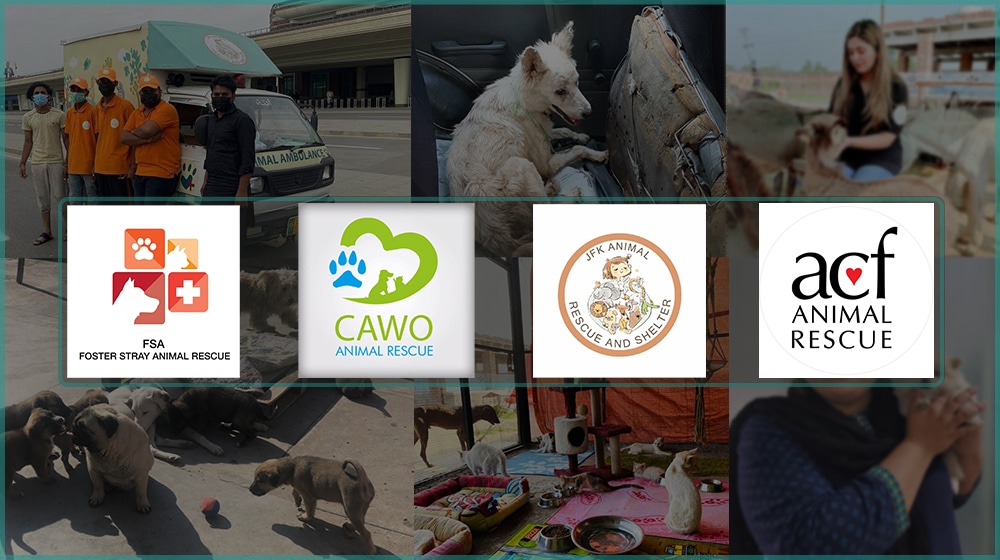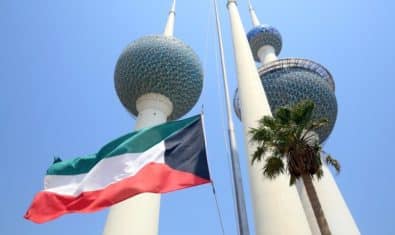After growing steadily for almost a decade, the concern for animal rights in Pakistan has been gaining impetus primarily via social media. Despite a lack of official, financial, and social support, independent rescue and rehabilitation services such as the Ayesha Chundrigar Foundation (ACF Animal Rescue) in Karachi, JFK Animal Rescue and Shelter in Lahore, Save the Strays in Islamabad, and the Critters Ark Welfare Organization in Rawalpindi are at the forefront of the activism for animal care while working to revolutionize it.
As full-time animal rescuers, these organizations rely on local donations to rescue sick, injured, and abused stray animals and provide them medical care, shelter, and food; and use social media platforms to help them achieve their goals. Unfortunately, the efforts of many individual and organized animal rights activists in Pakistan are often subjected to indifference and the classic taunt “yahan itnay log mar rehe hain aur in ko janwaron ki parri hui hai” which is a reflection of the mentality of perhaps, the majority of Pakistanis.
Children and adults abusing and killing stray and defenseless animals in plain sight is not uncommon in Pakistan, and the proliferation of smartphones in the country has led many to brazenly record videos of their abusive acts and upload them on social media. On the flip side, these videos result in a wave of social media activism and online petitions against the abuse and abusers, but the hype often does not last long because of the apathy of the majority of social media users and the indifference of the concerned authorities and the mainstream media.
Among the recent grievances among animal lovers in Pakistan are the rampant, unlawful culling of street dogs, and the gruesome conditions of animals in pet markets. Often, in such cases, people are unwilling to take it upon themselves to care for injured and abandoned animals, and contact local animal rescue services and shelters to rescue and care for them at their own expense. This puts the rescue and shelter organizations under a lot of pressure because they often work around the clock with volunteers, run their shelters at their homes, and pay their service bills out of their own pockets combined with meager donations.
Justice for Kiki (JFK), Lahore:
Justice for Kiki (JFK) Animal Rescue and Shelter is a registered nonprofit organization that operates under Section 42 of the Companies Act, 2017, in the Security and Exchange Commission of Pakistan, in addition to being registered with the Punjab Charity Commission (PCC). Zufishan Anushay founded it in memory of her pet dog Kiki who was rescued from the streets but was shot dead by a culling squad in 2020. Since then, Zufishan has made it her lifelong mission to provide medical help, and rehabilitation, shelter, and adoption services for stray animals. Her organization is also involved in the neutering, spaying, and vaccination of stray animals; has special facilities for disabled animals; and works to create awareness about the humane treatment of all animals.
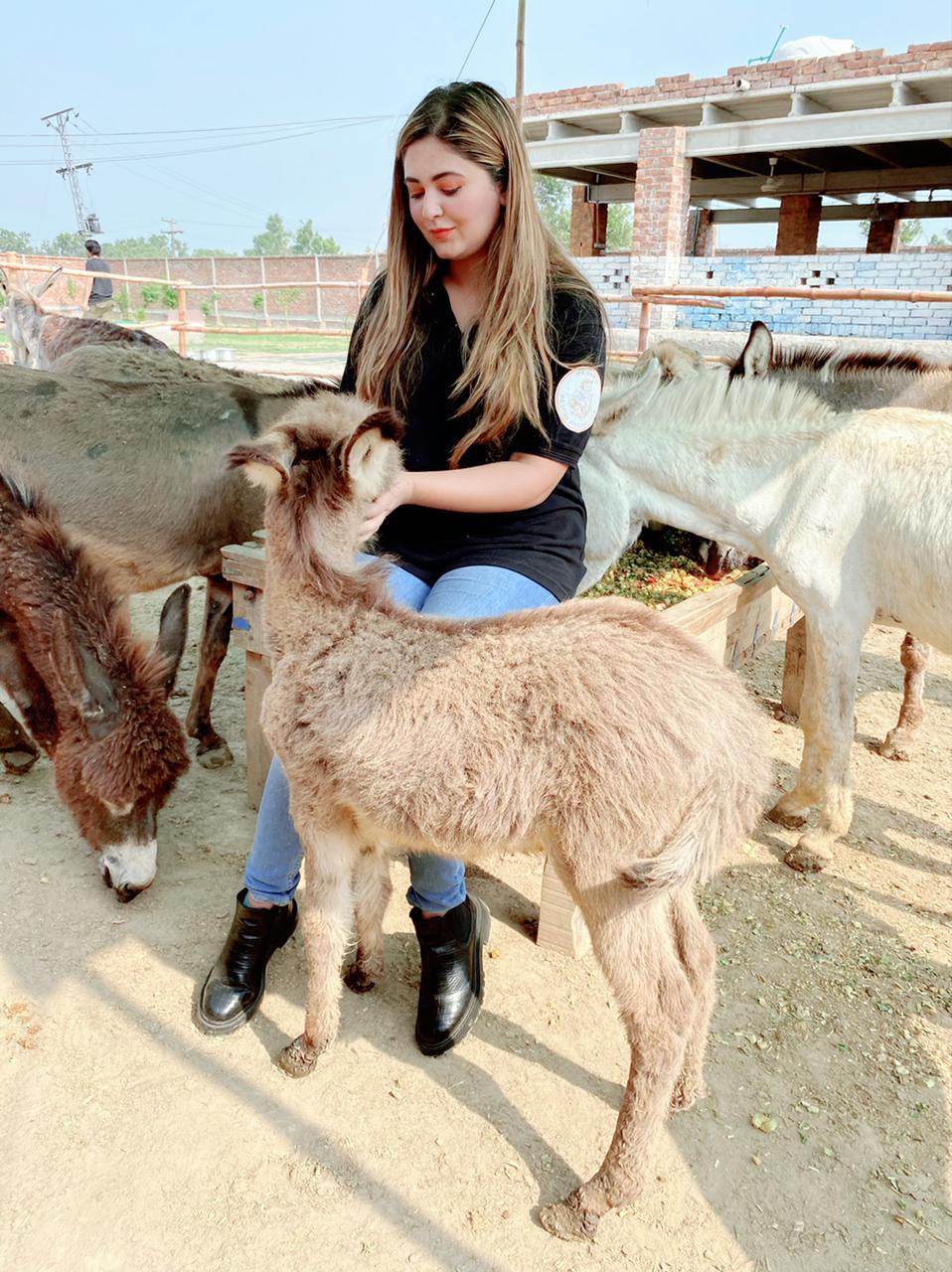
Besides sheltering nearly 300 animals in Lahore, JFK is also one of the very few animal care organizations in Pakistan that has a free 24/7 ambulance service and a modern clinic that treats stray animals for free. It has a trained staff, and advocates for animal rights through investigation, legislation, legal action, education, and multimedia campaigns. It also conducts free medical camps, and refuses to turn away or put down any creature in its care.
Zufishan believes that the concept of animal rights is relatively new in Pakistan. She and a lot of people are trying to bring a positive change in the country in this regard.
JFK has been particularly aggressive in its ongoing campaign to improve the welfare of the animals at Tollinton Market. In addition to working with legal officials to protect wildlife in Pakistan, Zufishan’s efforts have been instrumental in shutting down businesses and salons that sell and use mink eyelashes in Pakistan.

Critters Ark Welfare Organization, Rawalpindi:
Another animal rescue organization that is working to improve the morbid conditions of Rawalpindi’s pet market at Gordon College Chowk is Anila Umair’s Critters Ark Welfare Organization. Moved by the plight of hungry and neglected animals writhing in pain on the streets of Pakistan, Anila has been working with animals for 17 years and began using social media nine years ago to further her goals and highlight her efforts of rescuing, treating, sheltering, and finding forever homes for animals. The inspiration for the name of her organization comes from the epic ark of Hazrat Nooh (AS) who was given the divine commission of saving the animals of the world.
Based on her observations, Anila said, “There is very little awareness about animals in our country. Here, animals are treated like strange creatures. This is the reason why we and animal rescuers in other cities are trying our best to raise awareness about the rights of animals; that these are living beings made by God for a purpose, without which our ecosystems would not survive”.
Another animal rescue organization that is working to improve the morbid conditions of Rawalpindi’s pet market at Gordon College Chowk is Anila Umair’s Critters Ark Welfare Organization. Moved by the plight of hungry and neglected animals writhing in pain on the streets of Pakistan, Anila has been working with animals for 17 years and began using social media nine years ago to further her goals and highlight her efforts of rescuing, treating, sheltering, and finding forever homes for animals. The inspiration for the name of her organization comes from the epic ark of Hazrat Nooh (AS) who was given the divine commission of saving the animals of the world.
Based on her observations, Anila said, “There is very little awareness about animals in our country. Here, animals are treated like strange creatures. This is the reason why we and animal rescuers in other cities are trying our best to raise awareness about the rights of animals; that these are living beings made by God for a purpose, without which our ecosystems would not survive”.
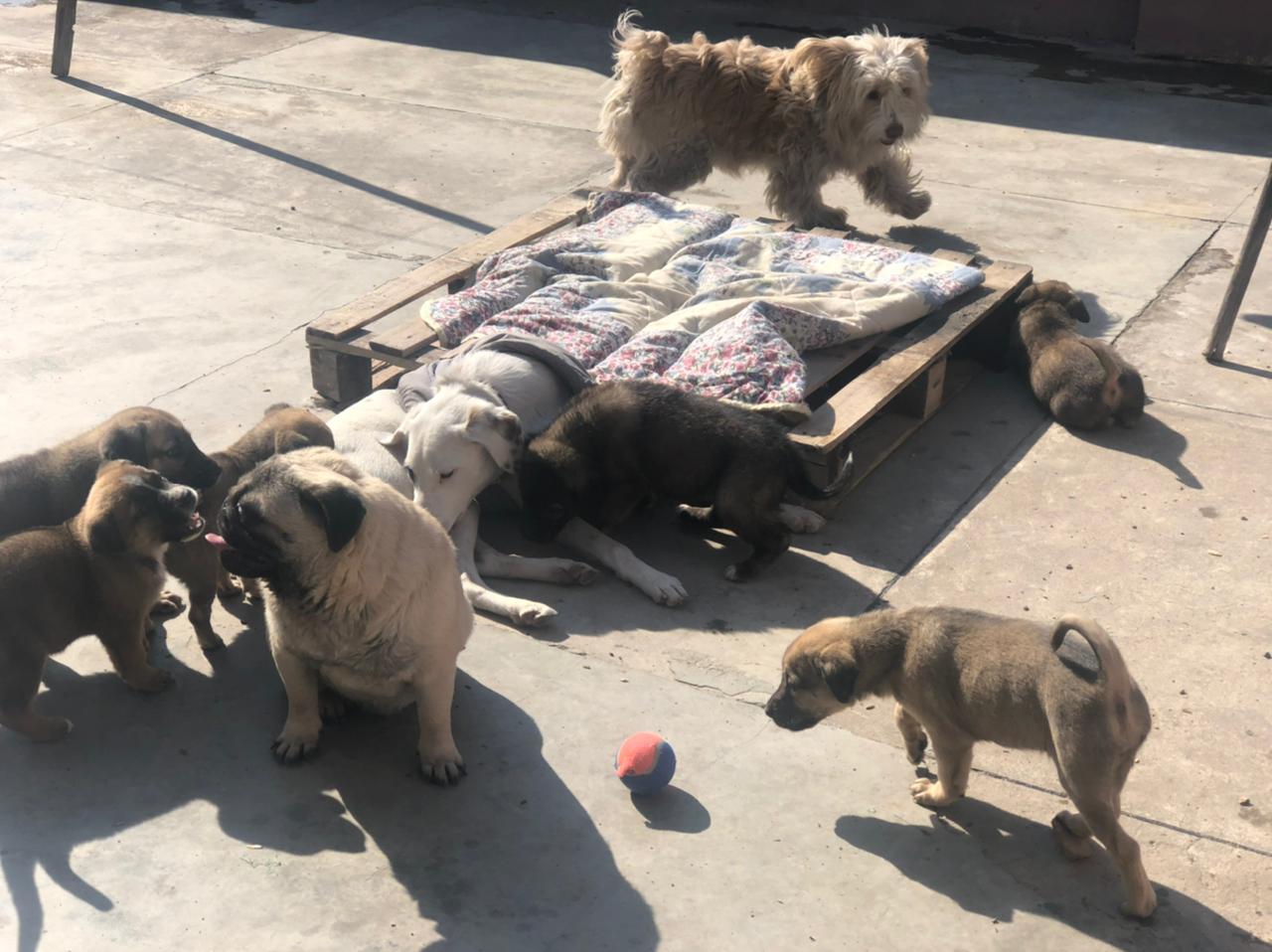
Anila’s animal shelter is within her own home in Rawalpindi where she cares for and feeds more than a hundred rescued dogs, cats, goats, birds, and a variety of creatures. “It makes my heart happy, especially when people talk to me about it, consult me, and share their concerns about their pets. Sometimes, we help people who cannot afford treatment for their animals,” she remarked.
While the work that major animal rescue services do is mostly transparent and accountable, not all such organizations are honest. Since activism on Facebook includes requests for donations, a good number of individuals and groups claiming to be rescue services can be found exploiting the cause. They often circulate unverified videos and images to ask for donations, pocket the money for personal use, refuse to update their donors about the welfare of the animals in sponsored cases, and get aggressive and abusive with people who demand accountability.
Save the Strays, Islamabad:
Fortunately, Save the Strays is one of Islamabad’s very few trustworthy and transparent local donation-based animal rescue and shelter services. Its founder, Saiqa Qazi, has been working independently for more than 15 years in Ghouri Town. Spurred on by her helplessness when people in her neighborhood began shooting stray dogs and when she found it increasingly difficult to fund her rescue services and vets’ bills on her own, Saiqa decided to take Save the Strays online four years ago. Nonetheless, her activism has not been without its share of hiccups online and offline.
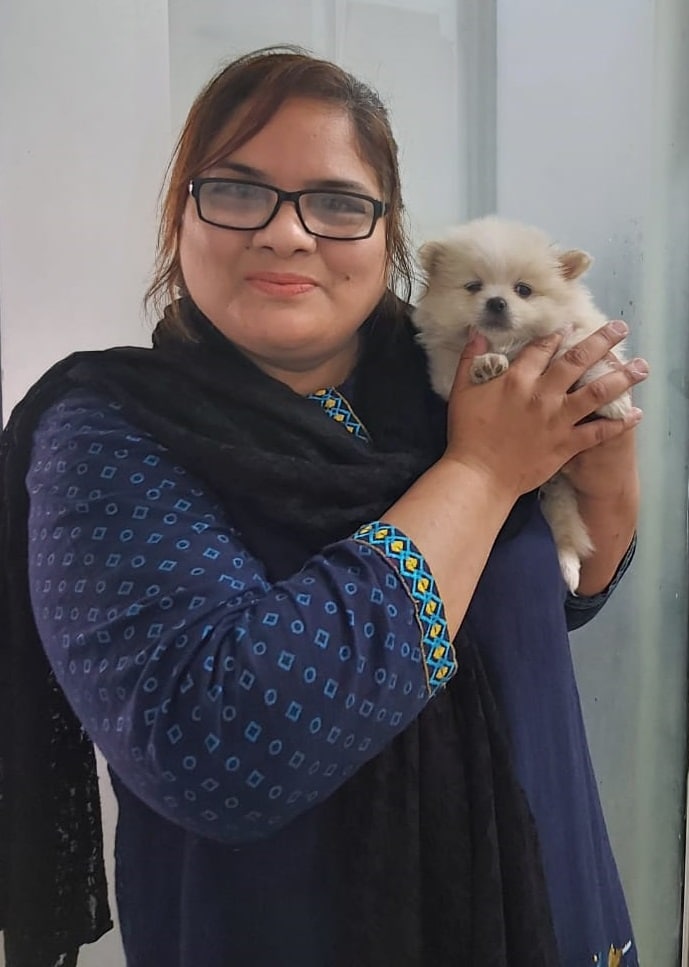
Saiqa works around the clock with all the animals that she either comes across or is entrusted to, including hit-and-run cases, and is vehemently against putting animals to sleep while doing her best to save every animal in her care. If she finds that one of her rescue cases is unable to survive on its own after all possible treatments and is unable to find someone to adopt it, she either keeps it at home or at her shelter which is 22 km beyond Gujar Khan. She often bemoans how she is forced to take up more rescue cases than she can handle and is unwilling to reject even a single one but lacks the resources to care for them all. “Ultimately, fundraising is our biggest obstacle,” she confessed.
Saiqa is also very particular about the vets to whom she takes her rescued animals and is vocal about the inhospitable attitudes of so-called animal rescuers who refuse to assist her when she is overwhelmed with cases. She asserts that not all vets and animal rescue services in the twin cities are reliable and cooperative, but are often money-makers, which is why she wants people to be cautious about the services that they choose.
Does Pakistan Have Laws that Protect Animal Rights?
Pakistan’s Prevention of Cruelty to Animals Act (1890) was aimed at the protection of animals based on the acknowledgment that they feel pain and suffering. Over the years, it was found to be archaic and insufficient in light of the growing understanding of the scientific and cultural underpinnings of animal welfare, while barely catering to the animals on farms and in zoos.
It is also relatively unknown that animal abandonment is illegal in Pakistan. Apart from campaigns by private animal rights activists, there are almost no legal instructions about how animals should be cared for or protected. The entire responsibility seems to have been shifted via the provincial governments to the provincial wildlife departments that often appear to be limited in their capacities and concern.
Zufishan, Anila, and Saiqa were in concurrence of the fact that the existing laws are outdated, remain majorly unenforced, and are in dire need of amendments. They want the federal and provincial governments to create and enforce new laws for the protection and welfare of animals, want pet markets and culling to be banned, and want official campaigns for the awareness and promotion of animal rights. Zufishan added that she wants the government to provide shelters and food for stray animals.
While lamenting the state of laws for animals and the lack of official help, she said, “Animals are suffering because of this, and the implementation of proper laws is imperative. For example, dog culling has [officially] been stopped in Punjab but dogs are still culled each day”.
She added, “Fighting for the rights of animals is not easy in Lahore. We have tried, multiple times, going to police stations for specific animal abuse cases, but you are either made fun of or taken very lightly. Usually, the responses are very cold”.
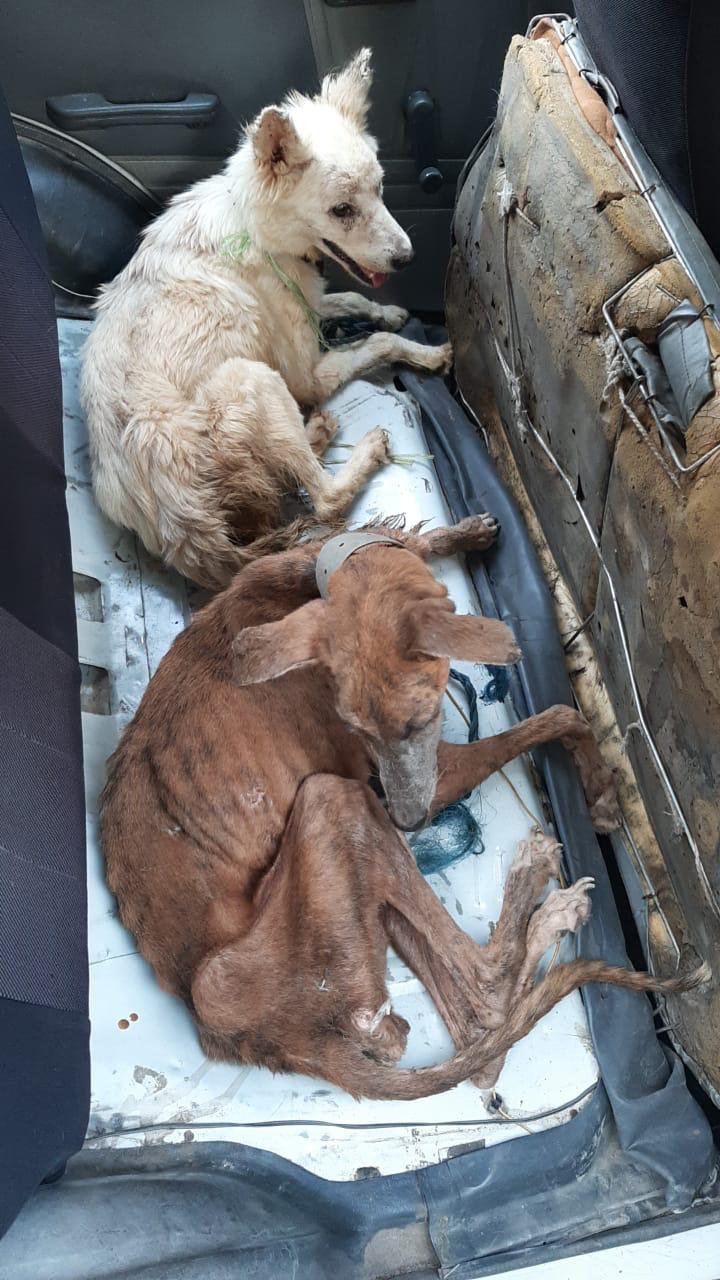
Anila particularly wants the law that fines animal abusers an amount of Rs. 3 lakh and six months of imprisonment to be implemented, and is convinced that until this happens, Pakistanis will continue to harm animals. She added that further measures to protect animals are difficult without proper legislation. “A human is punishable for murder by hanging to death, and in foreign countries, even the traffic stops to let animals cross the road, but in Pakistan, people are not satisfied until they hit an animal on a road and run over it multiple times. As a Muslim country, Pakistan should be more considerate of such concerns but on the contrary, you will see this concern in foreign countries. As Muslims, we should be more mindful of what Islam tells us”.
Saiqa commented, “We are still using the law from 1975 that entails a fine for abusers, and some other outdated laws from the British Raj era. No significant changes have been made in legislation. There are no rules in Islamabad, and people shoot street dogs despite it being outlawed by the CDA. This rule only applies to the CDA and not to the citizens of Islamabad. It is even worse in Rawalpindi where people openly kill dogs and boast about it”.
She added that the issues of the Pet Market on [Gordon] College Road are dreadful. “There are no laws, rules, or regulations based on which the pet shops can be closed and their owners sued. Pet shops all over Pakistan should either be banned or regulated because the animals are crammed into inhumane and unhygienic enclosures in little shops. They should be properly fed and cared for but many of them are sick, suffocated, neglected, and often die there. The pet shop owners even dump their carcasses in the nearby garbage heaps. The police choose to ignore these issues because of the lack of proper animal rights laws”.
Do Officials Help Private Rescue and Rehabilitation Services?
It is no secret that the official wildlife services in Lahore and Rawalpindi are reluctant to communicate with or help civilians, activists, and rescue services and that their work is often shrouded in mystery.
Zufishan revealed that officials refuse to meet her for issues that are related to animals. “Whenever we have contacted the wildlife department related to wild animals, we have never received any positive response or any help whatsoever,” she stated.
She added that “some bright officials in the local government helped us get permission to set medical camps at Tollinton market. Many lawyers have voluntarily helped us with animal cruelty cases and it always gives us hope that they will continue to do so”.
Earlier this month, she and her team met with the Additional Deputy Commissioner (ADC) Rawalpindi, Abdullah Mahmood, to discuss the affairs of Rawalpindi’s Pet Market. The ADC and the Assistant Commissioner (AC) Rawalpindi City, Waqas Sikandari, accompanied them to the Pet Market and noted that the animals were suffering while being forced to live in appalling conditions. They promptly called for the existing SOPs to be changed, and tasked the team to devise new SOPs for the shopkeepers to follow.
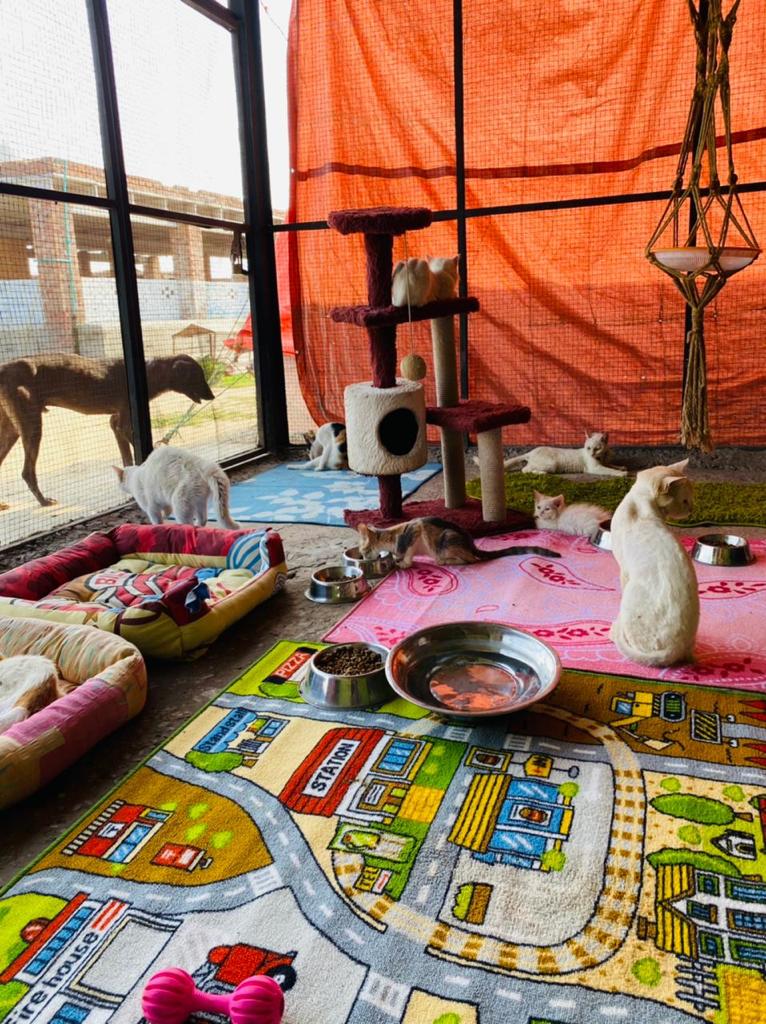
What Can Pakistan Learn from Turkey?
Turkey is an animal friendly-country in many surprising and heart-warming ways, be it via the government or the people themselves. However, several Pakistani animal rights activists consider Pakistanis’ obsession with Turkish pop culture ironic because of their convenient failure to notice the Turkish culture of unconditional caring for stray animals. Saiqa quoted similar examples that she wants Pakistanis to follow.
Anila particularly wants the government to run campaigns similar to Turkey’s vaccination, spaying, and neutering of stray animals in order to control their population and allow them to roam around freely.
Anila and Saiqa strongly feel that a new approach to creating awareness about and inculcating love for animals from childhood must be taken in schools via special sessions and programs at least once a week.
Conclusion
Zufishan lives for the day when Pakistanis will cease to look at animals with contempt and hatred, and wants instead for Pakistanis to look at animals with love and mercy as taught in our religion. “If you cannot love them, at least don’t harm them,” she warned.
Ultimately, with the prevalent mindset and without the active and continuous support of both the government and society, the vision for Pakistan as a haven for animals will remain an unfulfilled dream. Similarly, Pakistani animal rights activists and media would do well to use their platforms to do whatever they can to swiftly bring this change around.
